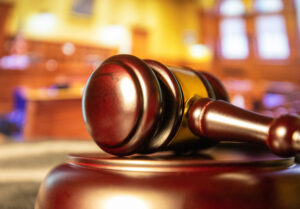A mistrial represents a significant, yet often misunderstood, event in the legal process. When a trial doesn't reach completion due to a variety of possible reasons, the consequences and subsequent steps can vary widely. Understanding what a mistrial is, why it happens, and how to navigate the aftermath is crucial for anyone involved in a legal case.
Below, we delve into the common causes of mistrials and offer guidance on what steps to take should one occur in your case. If you are in need of a free legal consutlation with a criminal defense attorney, contact Law Office of Michael L. Fell at (949) 585-9055.
Common Causes of Mistrials
Mistrials can occur for several reasons, all of which fundamentally undermine the trial's ability to fairly and accurately adjudicate the matter at hand. These reasons include:
- Procedural Errors: Mistakes in the legal process that could influence the trial's outcome.
- Juror Misconduct: Actions by jurors that compromise their impartiality, such as unauthorized contact with parties or independent evidence investigation.
- Impediments to Continuation: Situations like the illness or death of a key trial participant that prevent the trial from proceeding.
- Courtroom Outbursts or Unexpected Events: Incidents that could bias the jury or disrupt the trial's orderly conduct.
- Inappropriate Conduct or Statements: Significant errors or misconduct by the prosecution or defense that cannot be corrected with jury instructions.
- Hung Jury: When jurors cannot reach a unanimous decision, leading to a deadlock.
How Mistrials Can Benefit Defendants
Often, defense attorneys might seek a mistrial as a strategic advantage. Over time, the prosecution's ability to prove their case beyond a reasonable doubt may diminish due to factors like fading witness memories, the unavailability of witnesses, or changes in testimony. Moreover, in some cases, the principle of double jeopardy—preventing a defendant from being tried for the same offense twice—may apply after a mistrial, potentially barring further prosecution.
Next Steps: Navigating a Mistrial
If you find yourself facing a mistrial, it's essential to consult with a skilled defense attorney who can guide you through the complexities of your situation. Here's what you should do:
- Understand Your Position: Discuss with your lawyer the reasons behind the mistrial and its implications for your case.
- Evaluate Your Options: Depending on the cause of the mistrial and the specifics of your case, different strategies might be more advantageous. This could range from preparing for a retrial to negotiating a plea or even moving to dismiss the charges, if applicable.
- Prepare for the Next Steps: Work closely with your defense team to refine your legal strategy, gather additional evidence, and address any weaknesses in your case.
Seeking Expert Legal Guidance
In the wake of a mistrial, securing expert legal representation is more critical than ever. Law Office of Michael L. Fell offers comprehensive legal services designed to navigate the complexities of mistrials and their aftermath. By scheduling a free initial consultation, you can explore your legal options and develop a robust strategy tailored to achieving the best possible outcome for your case.
To leverage the expertise and strategic acumen of Law Office of Michael L. Fell, contact us today at (949) 585-9055. Whether through email, phone, or our website, our team is ready to provide the support and guidance you need during this pivotal moment in your legal journey.


